The actions of irresponsible businesses are devastatingly impacting human rights and the environment worldwide. At present, corporations are left to voluntarily police themselves, which has largely failed to effectively address environmental and human rights abuses related to business activities.
Mandatory legislation is needed to hold businesses to account for human rights and environmental abuses, such as: forced labour, violence against women, deforestation, union busting, forced evictions, land grabbing, harassment, threats, attacks and killings of human rights defenders, unchecked carbon emissions and biodiversity destruction
Irish-based companies, such as the ESB and AirBnB Ireland, have been linked to human rights and environmental abuses.
For example, the ESB has imported millions of tons of coal sourced from the Cerrejón mine in Colombia for decades. Indigenous communities next to the mine have suffered from chronic poor health and contaminated water and have faced fear and intimidation when they voiced their opposition to the multi-billion-dollar mining industry.
Ireland’s tax, trade, and investment policies have also seen it become a hub for some of the biggest and most profitable companies in the world, including the top five global software companies, 14 of the top 15 medical technology companies, all of the top ten pharmaceuticals companies, and eight of the top ten industrial automation companies. Yet recent research from Trinity College Dublin’s Centre for Social Innovation showed that half of the top 60 companies in Ireland, including many of these multinationals, as well as Ireland’s ten-largest state-owned enterprises, scored less than 20 per cent on their human rights policies. Moreover, 34 per cent scored zero on embedding respect for human rights in their operations.
The EU’s Corporate Sustainability Due Diligence Directive (CSDDD) is a draft law which was introduced by the European Commission in February 2022 and is currently being debated in the European Parliament. It aims to introduce mandatory laws for businesses to carry out human rights and environmental risk assessments, or due diligence across their global value chains, and crucially, to provide access to remedy and justice to victims of corporate harm. In other words, for the first time, businesses in the EU will be held to account for failing to take the necessary steps to ensure that human rights and environmental abuses are not occurring in their value chains.
The term “value chain” refers to the full range of business relationships or transactions involved in producing a good or service, from its initial design and investment to its final sale and use by the customer.
When it comes to exercising quality control over their supply chains, most corporations already have sophisticated systems in place to identify defective products and hold their suppliers accountable if a defect has occurred in the value chain. Companies should treat this as a quality control issue – a product that has human rights abuses or causes environmental harms in its production process should also be viewed as defective.
While some businesses are arguing against the introduction of new legislation, a growing number of leading businesses have supported calls for the legislation, arguing for the need to level the playing field. Many businesses recognise that this new legislation would be good for responsible businesses.
For instance, a group of 105 international investors representing $5 trillion in assets have called on governments to introduce due diligence legislation. Another group of 26 leading companies, including Adidas, Unilever, Primark and Mars with a combined annual turnover of almost €350 billion has called on the EU to introduce mandatory human rights and environmental due diligence legislation.
A level playing field is in the interest of businesses, as it would prevent businesses in one country from undercutting their rivals in other countries in areas such as workers’ rights and environmental protections.
Making laws in the EU involves the European Commission, the European Parliament and the Council of the EU. The draft Due Diligence Directive was proposed by the European Commission in February 2022. The Council of the EU, representing the Governments of the Member States, agreed their common negotiating position on the draft law on 1 December 2022. The European Parliament agreed its common negotiating position on the draft law and had a plenary vote on 1 June. After that, all three institutions entered negotiations – the so-called ‘trilogues’- to agree on a final version of the Directive. The Corporate Sustainability Due Diligence Directive entered into force on 25 July 2024.
The European Commission’s Omnibus I was proposed on 26 February 2025 to amend three key pieces of legislation – the Corporate Sustainability Due Diligence Directive (CSDDD), the Corporate Sustainability Reporting Directive (CSRD) and the Taxonomy Regulation – pillars of the EU’s commitment to curbing corporate human rights abuses and combating climate change.
The proposal would rollback on carefully negotiated regulatory frameworks that are crucial for workers and communities to access justice for corporate abuse.
The substance of the changes proposed to the CSDDD includes:
Get in touch with your TD! Through its Omnibus I proposal, the European Commission is pushing back on the rights of workers and communities and allowing corporate impunity to persist. Irish Government representatives will have the opportunity to debate the proposal at European Council negotiations and to push back against the weakening of standards for workers, communities and the planet.
This is the real opportunity to hold the standards of the new law high so that it protects communities, people, and the planet. Remember: our TDs are elected to represent our views, but if they don’t hear from their constituents, they can’t be blamed for assuming this issue doesn’t matter to us.
Read our latest policy paper ‘Make It Your Business’ from the Irish Coalition on Business and Human Rights.
Please watch this video from the Irish Coalition on Business and Human Rights explaining the devastating impact corporate abuse is having on communities’ human rights and the environment.
